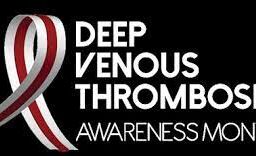
Promoting Health through Good Hygiene Practices: Essential Tips
Embarking on a journey toward optimal health and well-being involves embracing the significance of good hygiene practices. These habits, encompassing personal care, cleanliness, and preventive measures, play a pivotal role in warding off germs and diseases. In this exploration, we delve into the importance of cultivating good hygiene practices, not only for individual benefit but also for the well-being of communities at large. Discover the simple yet powerful steps that contribute to a healthier, more vibrant life.

Maintaining good hygiene practices is essential for promoting overall health and well-being. These practices involve taking care of one’s body, surroundings, and personal belongings to prevent the spread of germs and diseases.
The Benefits of Good Hygiene Practices
These practices can prevent the spread of infectious diseases and illnesses. Regular hand washing, for example, can reduce the risk of contracting illnesses such as the flu, colds, and stomach viruses. Proper cleaning and disinfecting of surfaces can also prevent the spread of germs and bacteria that cause infections. Good hygiene practices can also promote healthy skin, teeth, and hair, which can boost self-confidence and improve overall appearance.
Hygiene Practices in Daily Life and Public Spaces
Good hygiene practices should be incorporated into daily life to maintain optimal health. This includes regular hand washing, bathing or showering, brushing teeth twice a day, and washing clothes and bedding regularly. It is also important to keep living spaces clean and tidy by regularly cleaning surfaces, floors, and bathrooms. Additionally, individuals should avoid sharing personal items such as towels, razors, and toothbrushes to prevent the spread of germs.
Good hygiene practices are not only important in personal spaces but also in public spaces. This includes practicing proper cough and sneeze etiquette by covering the mouth and nose with a tissue or elbow when coughing or sneezing. It is also important to avoid touching one’s face, especially the eyes, nose, and mouth, to prevent the spread of germs. In addition, individuals should avoid close contact with others when feeling ill to prevent the spread of infectious diseases.
In conclusion, good hygiene practices are essential for promoting overall health and well-being. Incorporating these practices into daily life can prevent the spread of infectious diseases and illnesses, promote healthy skin, teeth, and hair, and boost self-confidence. It is important to practice good hygiene in personal and public spaces to maintain optimal health and prevent the spread of germs and bacteria. By following these simple hygiene practices, individuals can improve their quality of life and contribute to a healthier community.
Disclaimer: The information provided in this content is for general informational purposes only. It is not intended as medical or healthcare advice, diagnosis, or treatment. Always seek the advice of a qualified healthcare professional with any questions you may have regarding a medical condition or healthcare decisions.
















